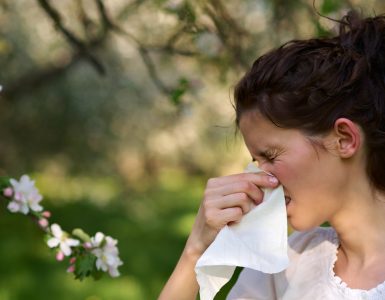Most people already understand the need to protect one’s skin from the sun’s damaging ultraviolet (UV) rays, but did you know that our eyes also need protection as well? According to the American Academy of Ophthalmology, spending long hours in the sun without eye protection can contribute to cataracts, skin cancer around the eyes, and macular degeneration. This can especially happen during the summer months when the level of ultraviolet radiation (UVA and UVB) is three times higher.
These tips can help you protect your eyes and minimize sun damage while still enjoying fun outdoor activities during the summer:
- Choose proper sunglasses. Wear labeled UV protective sunglasses that block 99-100% of UVA and UVB rays. Larger sunglasses and wrap-around sunglasses offer the most protection. (Also, remember that sunglasses aren’t just for adults—kids need sunglasses, too!)
- Wear a wide-brimmed hat. Even though a hat doesn’t always protect you from the glare and light reflections from other surfaces, it will still reduce the total amount of sun radiation that can damage your skin and eyes. For maximum protection, also wear sunglasses..
- Wear UV-protective contact lenses. Many people don’t realize that some contact lenses do not offer UV protection. But you can ask your eye care professional to prescribe Class 1 UV-blocking lenses that have a UV protection layer already built in and block out more than 90% of UVA and 99% of UVB rays.
- Watch the clock. Remember that UV exposure to the eyes is the highest in the morning and mid-afternoon, so plan your schedule and your attire accordingly.
- Be prepared for impromptu trips outdoors. Keep a bag containing sunglasses, sunscreen, and a wide-brimmed hat in the trunk of your car to use when you get the sudden urge to go the beach, park, or partake in any other outdoor activity.
- Remember that UV protection isn’t just for summer–or sunny—days and activities. Protect your eyes all year round. Even on cloudy days or winter days, your eyes are still susceptible to damage from UV rays, so always keep sunglasses handy. Plus, for those who enjoy winter sports such as skiing, keep in mind that the reflection from the snow, especially in high altitudes, has increased UV radiation.
Another way to be kind to your eyes is by getting yearly eye exams. If you are a Health Advocate member, our Personal Health Advocates can help you find in-network, qualified eye professionals who can give your eyes a check-up, check for signs of disease, see if your current glasses or contact lens prescription is correct, or determine if you need to begin wearing glasses or contact lenses. Additionally, our team can help you with a wide variety of health-related issues, such as scheduling second opinions, locating eldercare services, untangling medical bills, answering insurance benefit questions, and more.



